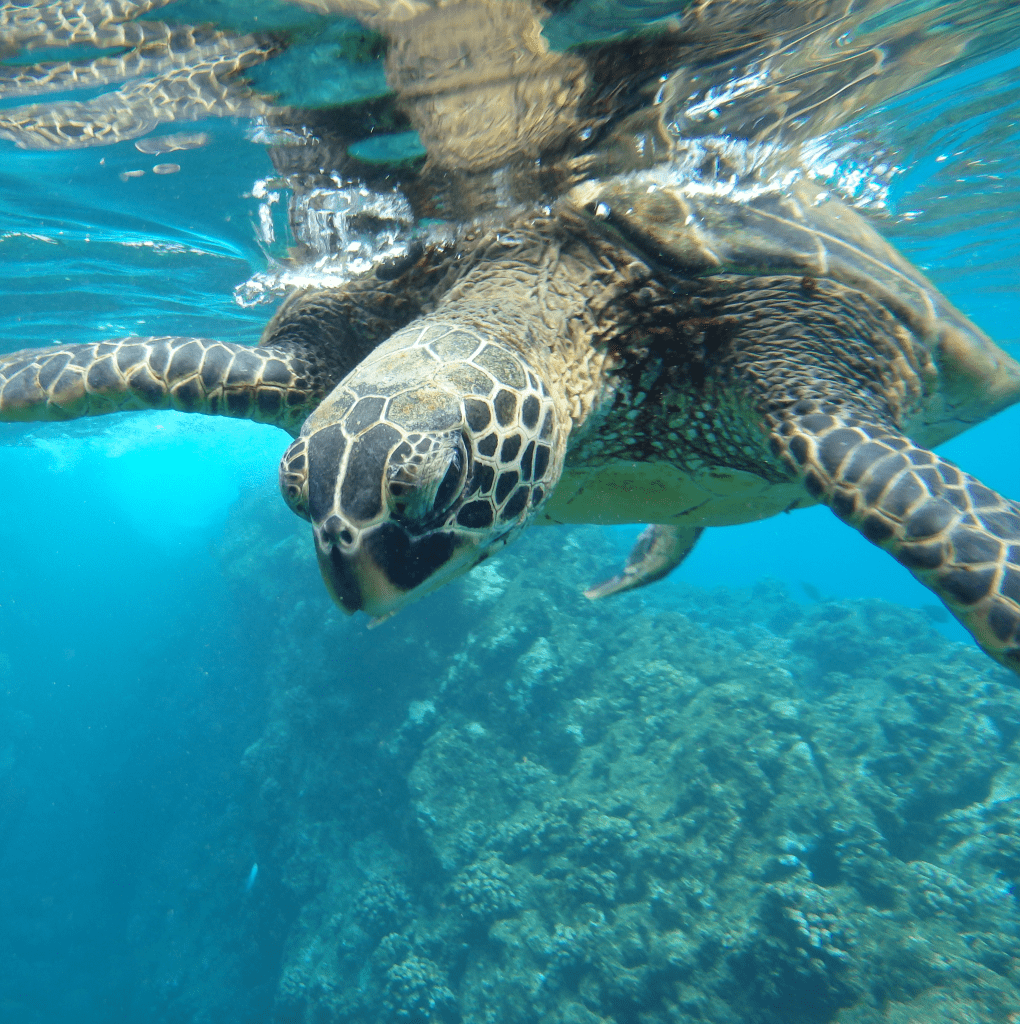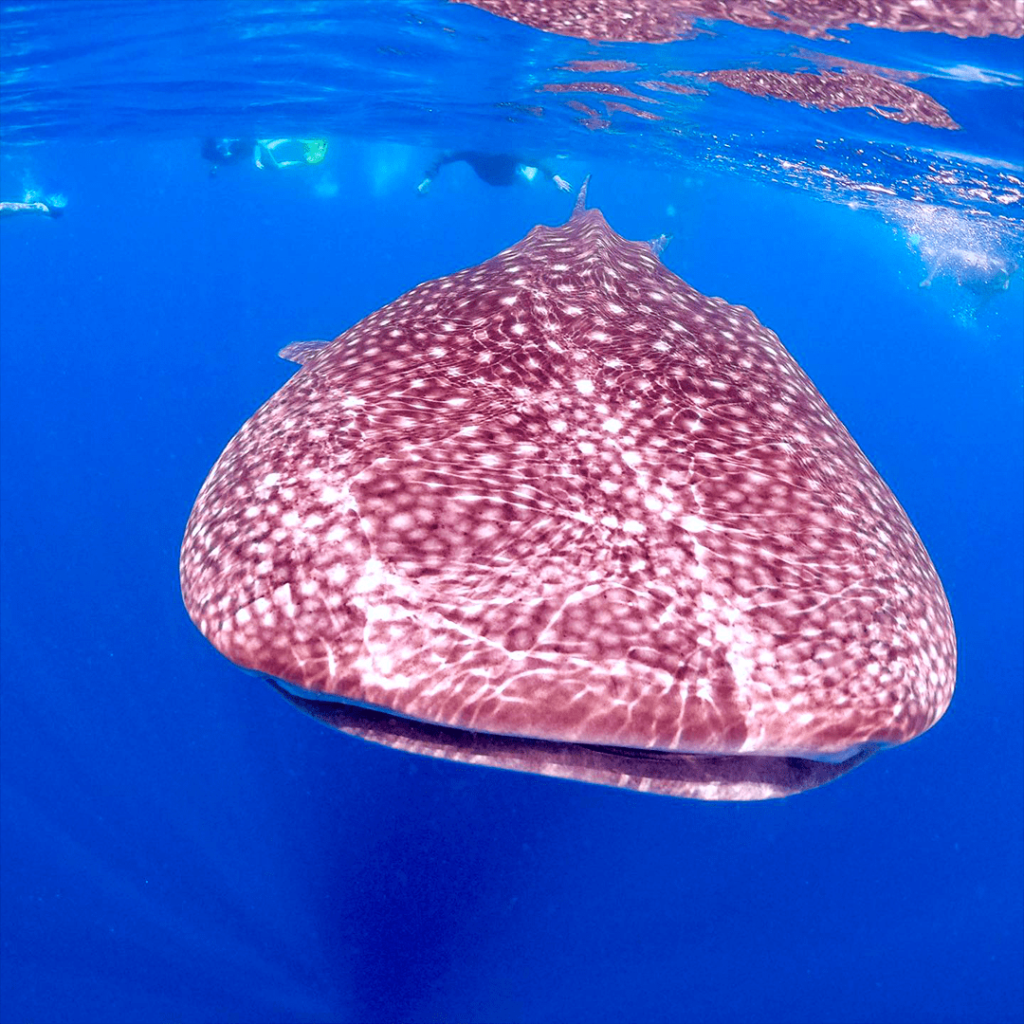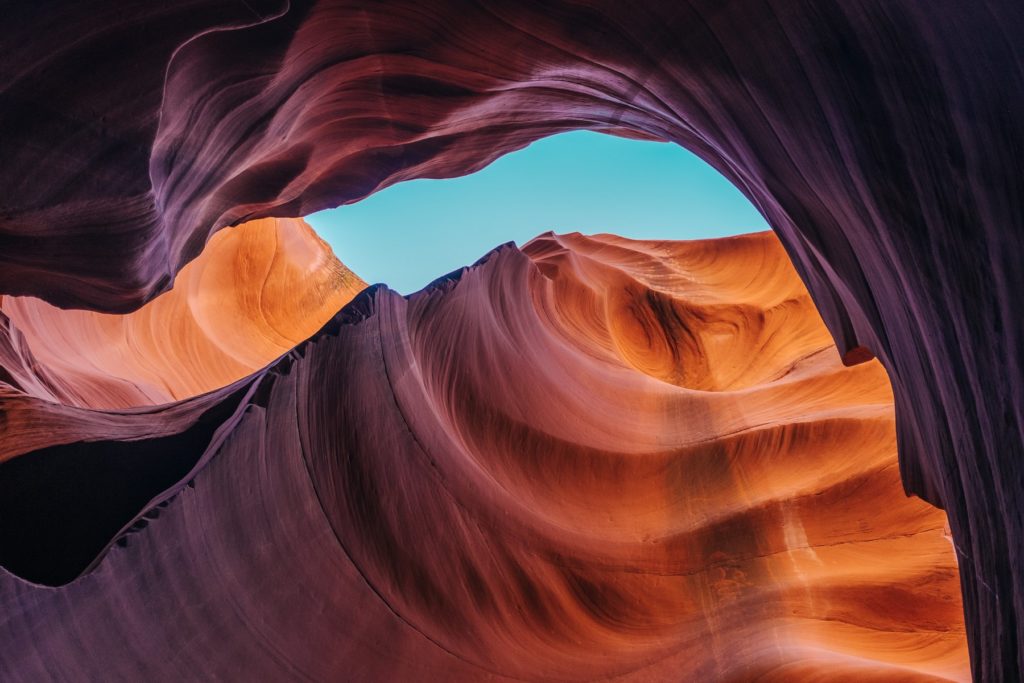Swim with the whale sharks, witness the might of the humpback whale, snorkel with beautiful turtles, meet playful dolphins, marine research, scuba diving centre, and a variety of fun ocean cruises. All on the best beach in Africa, Diani Beach.
Premiere Whale Shark Adventures & Dive Center in Diani Beach
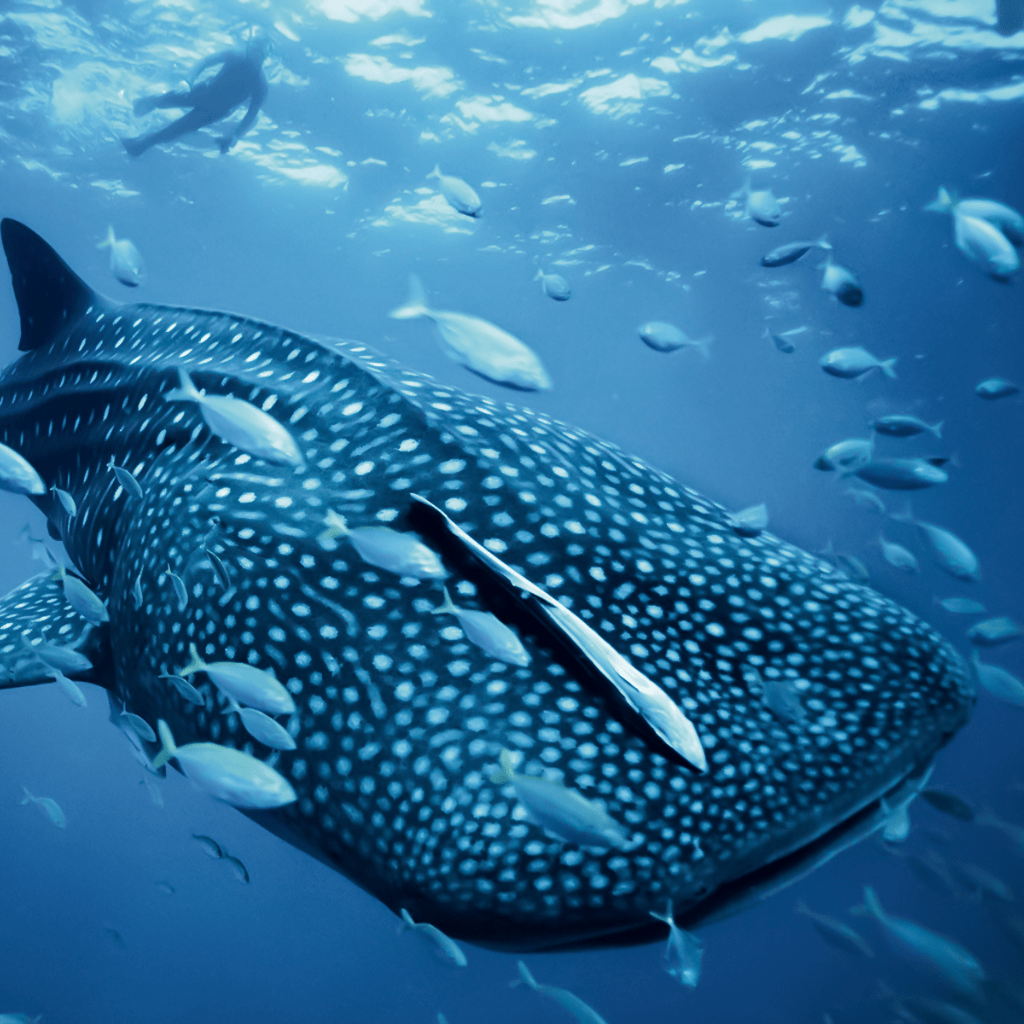
Let’s Explore the Ocean Together
About Us
Whale Shark Adventures is Kenya’s ONLY whale shark tour operator. We pride ourselves having 10 times more whale shark interactions than all the other scuba diving centres in Kenya combined. The “secret” to our success; we use microlight spotter airplanes to find these elusive gentle giants. The pilots then guide our boats to the whales, dolphins and whale sharks.
“Snorkeling with whale sharks is the best thing I’v ever done”
Siv Bassen, aged 10.
Our main research vessel is equipped with a hydrophone that allows us to record & listen to humpback whales singing and dolphins chatting!
We start our season with the annual humpback whale & dolphin watching trips 15th of August and run throughout with whale sharks starting to appear beginning of October. The whale shark expeditions using spotter airplanes starts 1st of January and run until 1st of April.
Working hand in hand with the East African Whale Shark Trust, we actively participate in whale shark research expeditions, providing equipment, boats, and spotter airplanes to locate these majestic fish.
We see dolphins and turtles all year round and organise turtle snorkeling trips too!
“The most amazing thing I’ve ever done!”
Sansi Dietz
In addition to the whale shark and humpback whale expeditions, we also offer a variety of exciting marine tours, adventures, and training.
Whale Shark Adventures is located Baobab Beach Hotel and Watano House premises, right in the center of Diani Beach, voted ‘Africa’s Premier Beach Destination 8 years in a row by the World Tourist Association.
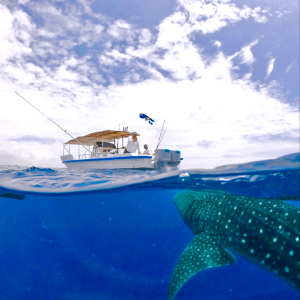
Join our whale shark research expeditions which have become an annual tradition, starting in the year 2000. We use spotter airplanes to search for the Whale shark. Once spotted, our whale shark research team (and you) snorkel with the shark while doing photo ID, sexing, sizing, and tagging with either splash tags or satellite pop-off archival tags.
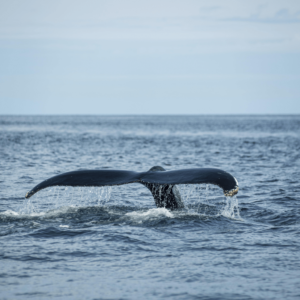
Every year around mid July migrating humpback whales start to appear off Diani beach. The peak seems to be between mid August until mid of October. In October the whale sharks also start arriving and we have had both humpback whales AND whale sharks during the same trip a myriad of times! We start the annual humpback whale watching tours 15th of August.
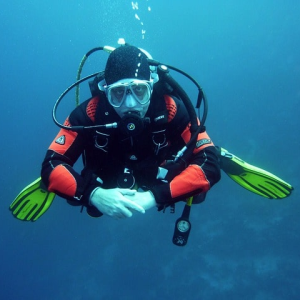
We focus on experienced divers. If you have a license from PADI, SSI or any other recognized scuba diving teaching facility and want to experience something new, such as Deep Blue FAD (Fish Attraction Devise) scuba diving, or scuba diving with whale sharks, night dives, wreck dives, deep dives, then look no further.
Our Founder & EAWST
Whale sharks are the largest fish species in the world and are known to inhabit the waters of the Indian Ocean, including along the eastern coast of Africa. They are gentle giants and are considered vulnerable due to threats such as plastic pollution, habitat degradation, fishing activities, and boat strikes. This and an overall passion for marine life is what inspired Volker Bassen, our director, to establish the East African Whale Shark Trust(EAWST) in an effort to research these magnificent creatures, raise awareness, and implement measures to protect their habitats, and ensure their long-term survival.
Our volunteers actively participate in scuba diving training, whale shark research, coral growing/transplant, turtle/dolphin identification as well as many land-based community projects.
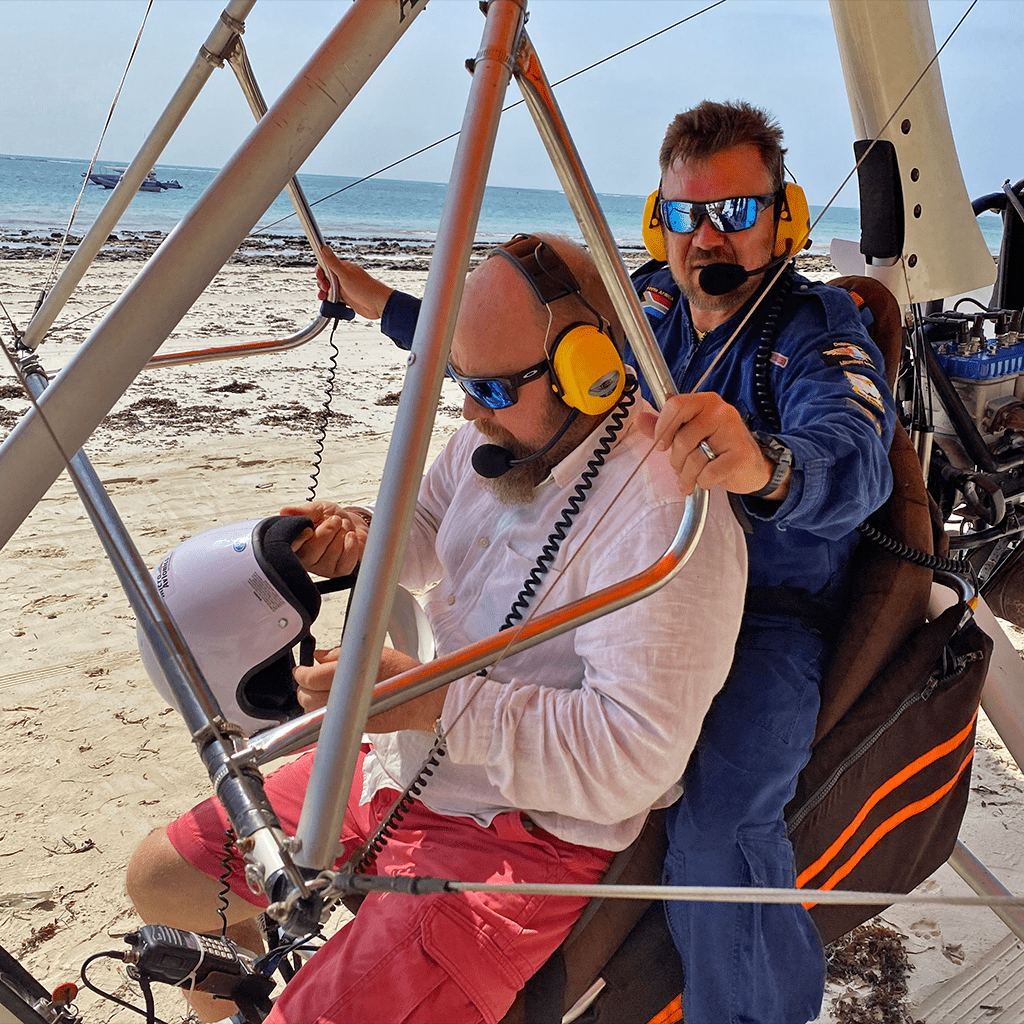
$132,350
Has been raised by our trust since its inception towards whale shark conservation, research and local community projects.
$3,490
Has been raised since the beginning of the year 2023 to date.
Dive into unforgettable adventures with our thrilling whale shark expeditions, mesmerizing humpback whale sightings, and playful dolphin encounters. Hop aboard our boat cruises for a breathtaking journey along the famous Diani Beach coast. Explore the depths with our PADI dive courses and unlock a whole new world beneath the waves.
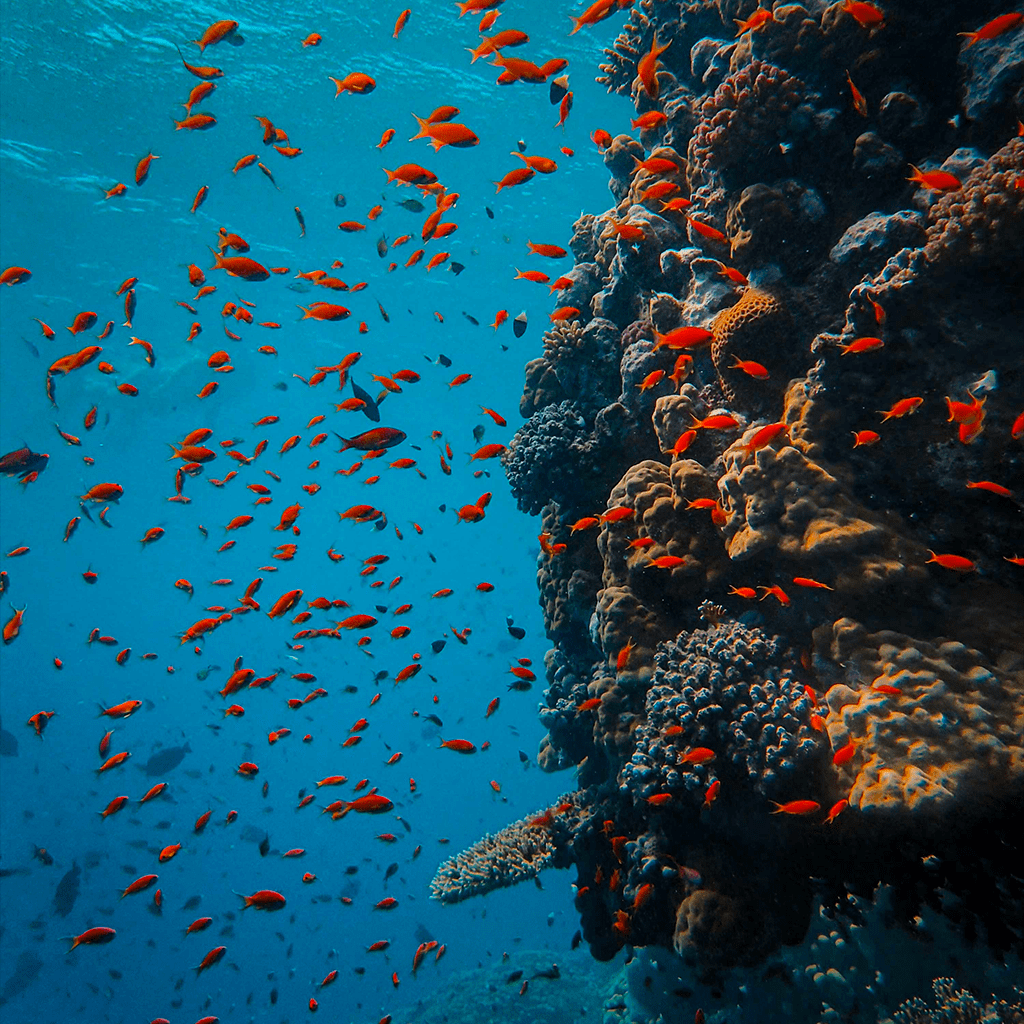
Frequently Asked Questions (FAQs)
The whale shark is the largest known fish species, reaching up to 40 feet long. It has a wide, flattened head, distinctive yellow spots and stripes, and feeds on plankton and small fish. These gentle giants are docile and can be found in warm oceanic waters around the world.
Despite their enormous size, whale sharks are gentle creatures and do not pose a threat to humans. They are docile filter feeders, mainly consuming plankton and small fish. However, it is very important to follow specific guidelines when interacting with them.
When interacting with whale sharks, it is essential to follow guidelines to ensure the well-being of these magnificent creatures and promote responsible wildlife encounters. Here are some general guidelines to keep in mind:
1. Maintain a safe distance from the whale sharks (roughly 4 meters from the tail and 3 meters from the head and body) to avoid disturbing or stressing them. Be sure to respect their space and allow them to swim freely.
2. Do not attempt to touch or ride the whale sharks. This can disrupt their natural behavior and cause harm to both the animals and yourself.
3. Avoid flash photography as it can startle and disorient the whale sharks. Use natural lighting or adjust your camera settings accordingly.
4. Do not feed the whale sharks as this can disrupt their natural feeding patterns and dependency on their natural food sources. Let them feed naturally on plankton and small fish.
5. Use eco-friendly practices by choosing operators and tour providers (such as Whale Shark Adventures and Dive Center, Diani Beach) that prioritize conservation and follow sustainable practices.
6. Limit interaction time to 30 minutes for a single shark and total interaction time to 1 hour.
7. Familiarize yourself with any specific rules or regulations implemented by local authorities or marine protected areas. Adhere to these guidelines to ensure responsible and sustainable interactions.
If these rules are broken, the whale shark is likely to become annoyed and engage in defensive behavior which includes eye rolling, banking, diving and tail-slapping. A whale shark that does not exhibit any of these behaviors and continues to feed while there are divers in the water, is the best sign that it is not bothered. It is also an amazing photo opportunity!
The humpback whale is a large baleen whale known for its distinctive features and captivating behaviors. With a length of around 50 feet and weighing up to 40 tons, it has long pectoral fins, a knobby head, and a pronounced hump on its back. Humpback whales are renowned for their acrobatic displays, beautiful songs, and migration between feeding and breeding grounds worldwide. They are filter feeders, consuming small fish, krill, and plankton.
Whale sharks can be found in several locations around the world, particularly in warm tropical and subtropical waters. Some well-known destinations for encountering whale sharks include the Maldives, Philippines, Mexico (such as the Yucatan Peninsula and Isla Holbox), Australia (such as Ningaloo Reef) and Kenya.
Humpback whales have a wide distribution and can be found in various regions during their migratory patterns. Some popular places for humpback whale sightings include Alaska (United States), the Dominican Republic, Iceland, Norway, the Antarctic Peninsula and the East African Coast (Kenya).
Whale shark and humpback whale sightings can vary depending on the time of year, as these species migrate to different regions for feeding or breeding purposes. It’s always recommended to check with local experts, tour operators, or marine wildlife organizations to determine the best times and locations for encounters with these magnificent creatures.
As far as Kenya goes, the peak times are during early February to late March and mid August to December.
